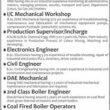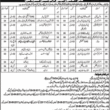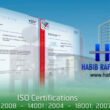For home comfort systems, it is unconditionally important to install an air conditioner. Eventually, once your AC is heavily used, it will outlive its usefulness and need to be replaced. The decision to replace the air conditioner is a way to save, bring about energy efficiency, and keep your comfort level high.
Here are the most prominent indicators illustrating that it’s time for an air conditioner upgrade:

Bad performance
- Inconsistent Temperatures: If you find that the air conditioning system is unable to maintain a constant temperature or some of the rooms in the house are cooler than others, then that is a signal that the system is no longer efficient.
- Humidity Problems: The air conditioners also dehumidify your home. If you notice more moisture than your house can usually handle, the AC is probably not working correctly. High humidity results in molds and discomfort.
High energy bills
- Increased consumption of energy: Older air conditioners start losing efficiency in operation, thus increasing the consumption of energy. If you realize your energy bills have risen out of the blue and there has been no additional consumption of energy, then your AC is to blame.
- Energy Efficiency Ratings: Modern air conditioning systems are designed to be more efficient regarding energy use. Look for the high SEER units. An air conditioner replacement can cut a large part of your energy bills.
Noisy Operation
- Uncommon noises: Some are just normal, but the loud and uncommon ones, like grinding, squealing, or banging, may mean you have a severe problem with your air conditioner. Most of the time, these noises typically indicate a problem in the compressor or motor.
- Quiet Operation: The modern air conditioner is designed to be quieter when operating. If noise is a concern, replacing this appliance with a modern unit may help keep the inside environment quieter.
Obsolete technology
- Lack of Smart Features: Modern air conditioners are built with programmable thermostats, remote control functions using smartphones, and energy usage monitoring. These are conveniences and efficiency optimization for your system.
- More Comfort: The advanced technology, when you decide to upgrade your unit, is going to give added comfort due to temperature control, improvement of airflow, and features that save energy.
The Age of the Air Conditioner
- Lifespan of the AC unit: An air conditioning unit would last about 10-15 years on average. A unit older than that will need to be replaced. Older units are far less efficient and have many more breakdowns.
Frequent Repairs
- Recurring Problems: If one keeps experiencing the same problems, for instance, refrigerant leaks, electrical failure, or compressor issues, it means that the system is basically worn out. Constantly fixing these problems sometimes turns out to be more expensive than just purchasing a new unit altogether.
Several factors determine when to replace an air conditioner: unit age, repair costs, performance problems, energy efficiency, and environmental impact. An expensive initial cost for a new air conditioner is a long-term benefit since it brings increased comfort and energy savings, not to mention minimized repair costs. If you are experiencing one or more of the above, it might be the time to start thinking about speaking to an experienced professional HVAC technician about your options to upgrade your air conditioning system.




















